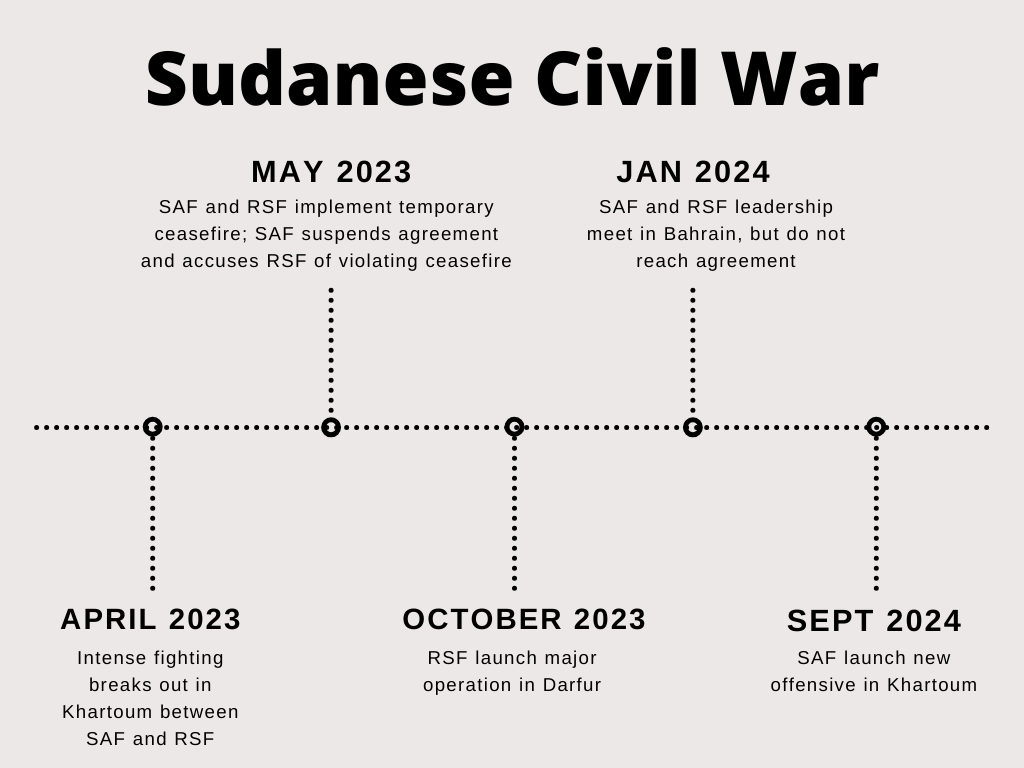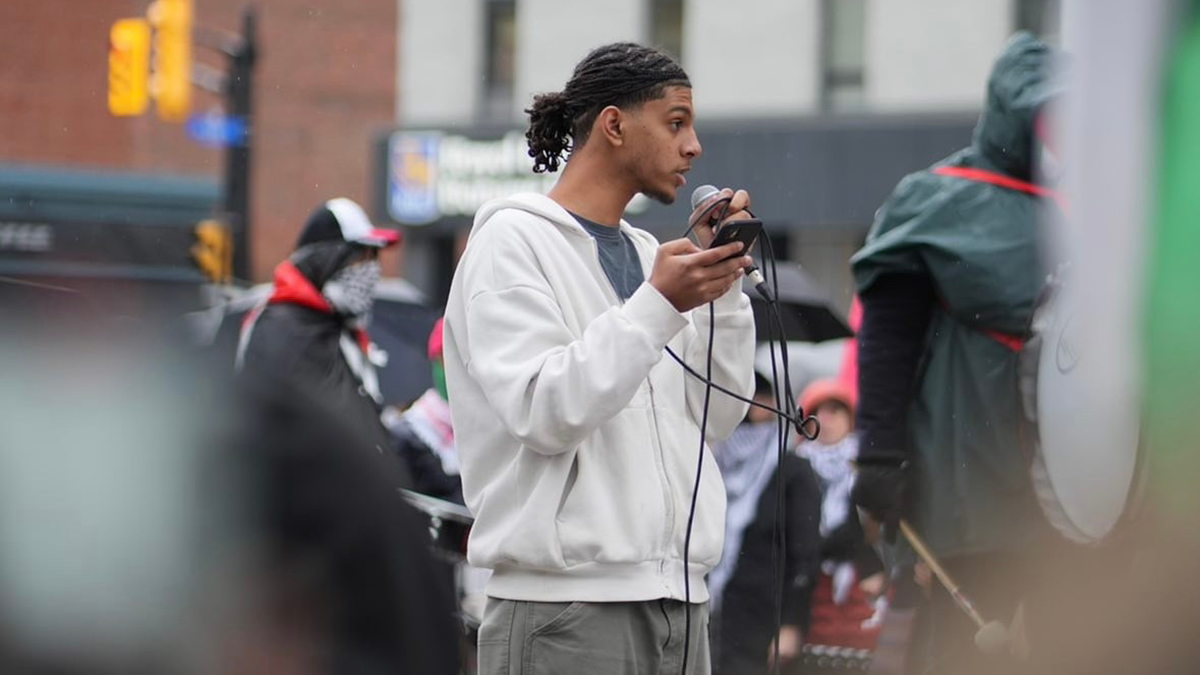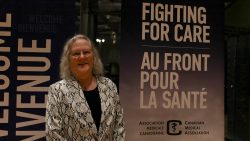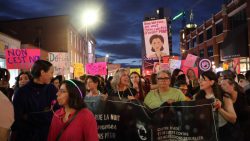For Aida Elbadri, the work began with a single family.
When war broke out in Sudan in April 2023, about 1,800 Canadian-Sudanese citizens were registered in that country.
“My sister and I were calling [Immigration, Refugees and Citizenship Canada] and finding the times of the airplanes arriving in Sudan so people could get to them” to leave, she said.
That work became personal when she went to Toronto Pearson International Airport one night and met a family of five — three children, a husband and a wife — who had just arrived and had no support in Canada. The wife was a Canadian citizen, but had returned to Sudan as a young girl.
“This specific family got my attention because other families either knew someone or their situation was able to be figured out,” she said. “I put my attention to this family, and we [my sister and friend] put them in a hotel room.”
From that night, Elbadri’s efforts as part of the Sudanese Community Association of Ontario shifted into overdrive. Since becoming SCAON’s chairperson in 2023, she has focused on helping Sudanese newcomers navigate life in Canada.
“We would call out for basic needs: donations, clothing, non-perishable food, diapers, strollers and other necessities,” she said. “I believe that by July, we had nearly 50 families in shelters in Mississauga, Brampton, Etobicoke, Scarborough … “
Based in Toronto, she regularly delivered necessities to these shelters.
The Sudanese civil war began on April 15, 2023, when violence erupted between the Sudanese Armed Forces (SAF) and the rival Rapid Support Forces (RSF). Since then, the war has resulted in more than 60,000 dead, and more than 11 million displaced.
This is the third civil war in the country’s history, the first was from 1955 to 1972 and the second from 1983 to 2005.
“My siblings, my parents, my uncles, my aunts, all of us have lost,” said Ashraf Al-Tahir, the president of the Sudanese Canadian Community Association (SCCA) in Edmonton. “They have lost their wealth, they have lost their … means to live — their jobs, their resources.”

The Sudanese diaspora in Canada, though relatively small with just more than 17,000 people according to the 2021 census, has stepped up to address the crisis. Through organizations like SCAON and the SCCA, it has raised funds, coordinated relief efforts and lobbied the Canadian government for more support for Sudanese refugees and families.
“There needs to be support in terms of building knowledge and navigating opportunities in the country,” said Al-Tahir. “The main objective [when we started this] was sharing the different challenges and how to overcome them.”
Mohamed Mohamed, vice-president of finance for the Sudanese Union Student Association (SUSA) at Carleton University, said students are also playing a role in raising awareness and creating community.
“We host events that get people together to make more of a lighthearted kind of environment to, one, get people interested and engaged, and two, to spread a message,” he said. Carleton’s SUSA has hosted bake sales, movie nights, trivia events and letter-writing workshops to gather together the large, diverse African community at Carleton and raise awareness in Ottawa.
The association has gained more than 400 supporters on social media since the start of 2024.
Their efforts are aimed at building solidarity and helping amplify the voices of Sudanese Canadians as they call for international action to send humanitarian aid to Sudan, while advocating for changes to immigration rules.
“What we are trying to do as a community association is raise awareness around the crisis happening in Sudan, both to the government of Canada and charity organizations to chip in and try to help … also to international organizations such as the UN and others,” said al-Tahir.
One of the community’s biggest struggles has been navigating Canada’s immigration system. in 2023, Immigration, Refugee and Citizenship Canada (IRCC) introduced a special pathway to help Sudanese Canadians bring immediate family members to safety. However, delays have left many in limbo.
“We are seeing that the IRCC are not giving priority to processing the applications, and every day the situation in Sudan is turning more severe than the day before,” said al-Tahir. “People are dying. People who applied through this program have died.”
In an email to Capital Current, IRCC communications adviser Mary Rose Sabater said that the special pathway intake cap of 3,250 principal applicants was reached in June.
“As of Oct. 28, 2024, 3,250 applications for 7,328 people (excluding non-accompanying dependents) have passed completeness check and have been put into processing. As of Oct. 28, 2024, there are 182 approved applications and there have been five arrivals.”
IRCC also said that those affected by the conflict can apply to the standard immigration pathways (permanent or temporary residency), as those applications are being prioritized.
“(Some) 7,815 people affected by the conflict in Sudan have been approved to come to Canada as permanent residents through priority processing; of those, 6,383 have landed,” said Sabater.
One challenge, Elbadri says, is that applicants in Canada must have significant financial resources to sponsor family members.
“It took too much time and money. Per person, I believe it was [about] $9,800 to keep in a bank for one year, and when they arrive, you have to take care of these family members because they won’t have government help for this whole year,” she said.
For many Sudanese Canadians, the focus remains on rebuilding lives and ensuring newcomers have the support they need.
“Right now we are thinking ahead about what we’re going to be doing so when people arrive in Canada there will be some sort of services that enable and help them to integrate,” said al-Tahir.
Community leaders such as Elbadri also say that it is important to build cultural connections in order to build resilience.
“I came here in 1998. I strayed away from my community, but I got older and understood the importance of my community and the morals my community has and went back to it.”
She said that she loves the uniquely warm hospitality that Sudanese people offer.
“Your community plays a very important part in your life. It grounds you, and at the end of the day, it’s who you are.”




